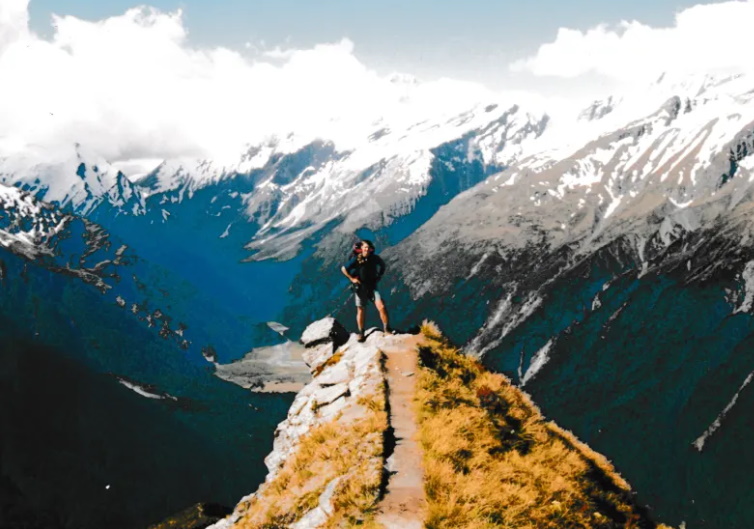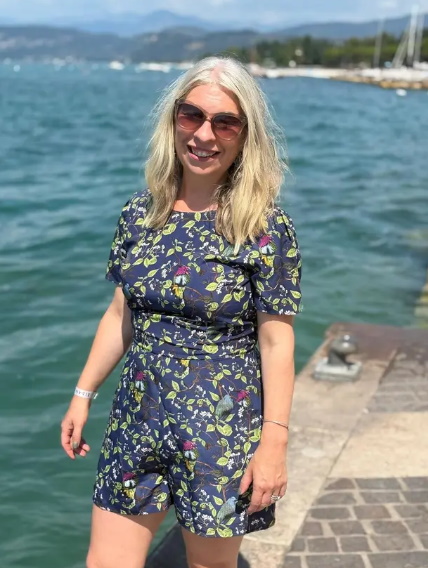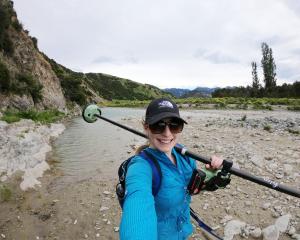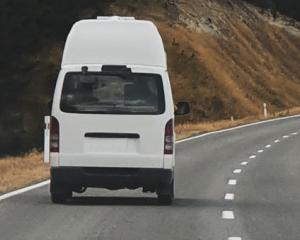
Twenty years after a New Zealand mountain tragedy claimed her partner's life, an Irish tourist has spoken about the day.
It was January 11, 2005, and Helen McClemmens a 26-year-old Irish teacher had just stood atop Cascade Saddle in Mount Aspiring National Park, overwhelmed by the beauty.
"I just felt this real sense of being suspended between heaven and earth," she recalls in RNZ's new podcast series Search and Rescue NZ.
"It was just transcendental."
Minutes later, on the descent, she slipped and started sliding over snow.
"I remember at first thinking, 'woo, gosh, I'm going quite fast,'" McClemmens says. "I had no idea I was near a cliff edge."

Helen survived with a broken pelvis and serious head injuries. Donal did not.
Host of Search and Rescue NZ, Paul Roy describes it as “quite an emotional interview".
“What came through was her immense gratitude for the rescuers who saved her life at great risk to themselves, mixed with the guilt of her accident causing her boyfriend’s death.”
McClemmens speaks of her feelings with striking candour: "Donal came a cropper because I slipped. I should be dead, but I'm not dead. I'm still alive."
The podcast reveals the extraordinary rescue that unfolded that sunny day, when Queenstown couple Eric Bradshaw and Christine Ryan, climbing nearby, sprang into action.
Bradshaw abseiled down a treacherous cliff using lightweight ski rope, spending hours giving Donal CPR, while wedged under melting avalanche debris.
"I just kept thinking, I just need to stick at this and the search and rescue people will turn up," he recalls.
"There's going to be a paramedic who's going to give him an injection, and I'll be sitting next to his bed in Dunedin hospital in two days."
That proved to be wishful thinking.
When experienced search and rescue volunteers Dave Vass and Hugh Barnard arrived, they had to make the toughest of decisions.

“And I guess it fell upon us. Dave said, listen, there's no point continuing, you've done an incredible job but from our experience we're not going to get this guy back.”
Helicopter extraction proved impossible in deteriorating weather. The rescuers hauled McClemmens' stretcher for hours across cliff faces using a network of ropes across slopes where, as one rescuer puts it, "if you slip, the chance of you stopping is pretty remote."
McClemmens spent a month recovering in Dunedin Hospital before returning to Ireland for Donal's funeral.
Today, re-partnered with a full life, she carries a complicated legacy:
"I'm going to grab life. And boy, did I grab life," she says. "But I'm always so conscious that because of the speed at which other people may think I got back on my feet, that Donal didn't matter."
She pauses. "Donal has always mattered hugely. I basically carry Donal every day."
Roy says it took a while to track down McClemmens in Ireland:
“As far as I knew she hadn't spoken publicly about her ordeal in the intervening years. When I did find her, I wasn't sure she would speak to me, as it meant reopening the trauma.”
In fact, he says, McClemmens was very open and honest.
Following the accident, prominent warning signs were posted at Cascade Saddle, alerting trampers to dangers that claimed multiple lives on what appears to be an innocuous alpine crossing.
“We often think of search and rescue as high drama situations - and they can be - but Helen's story is all too common, where with no warning on a beautiful day in the mountains, with no hint of danger, enjoyment can turn to tragedy in the blink of an eye."














